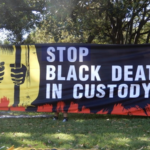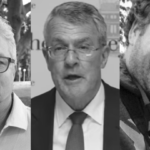Women Under Reimposed Taliban Rule: An Interview With DANA’s Barat Ali Batoor
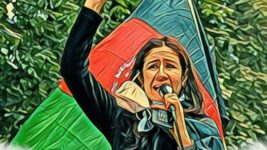
Two hundred and twenty women judges in Afghanistan have gone into hiding, the BBC reports. After being charged with maintaining the rule of law in their country, these judicial officers fear for their lives, with those they may have sent to prison in the past, now holding positions of power.
Following the US invasion of Afghanistan in October 2001, the Taliban was overthrown. This brought the hard-line group’s five years of authoritarian rule to an end, which had been marked in particular by the brutal system of segregating women and girls from public life.
With the capital Kabul falling to the Taliban on 15 August this year, the fundamentalist organisation went on to establish an interim government on 7 September, announcing the regime will now officially be known as the Islamic Emirate of Afghanistan.
As the US pulled out its final troops on 30 August, the question as to whether the Taliban would reinstate its harsh policies of the late 1990s was widely raised, and with the reopening of secondary schools a fortnight ago without any girls, the answer became clear.
US-Taliban peace deal
The Diaspora Advocacy Network for Afghanistan (DANA) staged a rally in Brisbane on 19 September, calling on the Australian government to stand in solidarity with the women of Afghanistan, and take action on their behalf.
“The shameful deal with Taliban representatives signed by the allies and US in Doha to leave Afghanistan by the end of August 2021 has ended in chaos and created a humanitarian crisis,” DANA’s press release reads.
The Doha agreement was a peace deal that the Trump administration came to with the Taliban on 29 February 2020. It provided that the United States and its allies would pull their troops out of Afghanistan, as long as the Taliban agreed not to let al-Qaeda operate in the region.
The agreement stipulates that no group will be allowed to use Afghanistan as a base to act against the US and its allies, that a timeline for withdrawal of foreign forces be established, and that the Taliban negotiates with other domestic forces, which should lead to a permanent ceasefire.
The diaspora
DANA is a collective of people from Afghanistan now living in Australia. The group advocates for the rights of vulnerable populations, such as women and girls, religious and ethnic monitories – like the Hazara – LGBTIQ people, human rights activists and journalists.
The organisation points out that over the last 20 years there has been a significant increase in women and girls attending schools and universities in Afghanistan, as well as holding civil servant and senior management positions, along with women having moved into parliamentary roles.
And the Diaspora Advocacy Network for Afghanistan fears this progress could now be lost.
Sydney Criminal Lawyers spoke to DANA spokesperson Barat Ali Batoor about the encroachments upon rights that are already occurring under Taliban rule, how the population of Afghanistan is made up of many ethnicities and calls for our nation to take in a greater number of refugees.
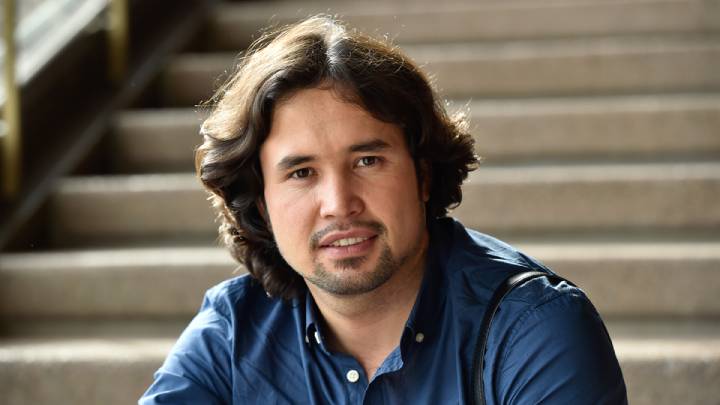
Firstly, Kabul fell to the Taliban on 15 August. The United States and its allies pulled out their remaining troops on the 30th of that month.
The return of Taliban rule after it was overthrown in 2001, has led to widespread fears that the segregation system that applied to women in the late 1990s may return.
There are already reports emerging of the Taliban imposing restrictions upon women’s education and their ability to operate freely in the public sphere.
Barat, what’s happening to women right now under the return of Taliban rule?
Since the Taliban has returned, they’ve ended the Ministry of Women’s Affairs and turned it into an office for the religious police.
They have also prevented women from going to their workplaces. They have been asked to resign from their positions, or, if not, they will be fired.
Around 10 days ago, the Taliban announced that secondary schools are going to reopen for boys. But they did not mention girls.
So, that’s an unannounced ban on girls’ education. They do not believe girls should have an education, so they’re preventing this like they did in the 1990s.
In some parts, we’re hearing that women are not allowed to go out without a male relative, and if they do, they will be publicly whipped.
Also, when they first occupied Takhar, a province in the north of Afghanistan, they were looking for young girls to forcibly marry to Taliban fighters.
So, that’s their approach to women. They’re one of the most vulnerable groups in Afghanistan at the moment.
But despite return of repressions, there has been a vocal and highly visible women’s rights movement organising public demonstrations and resistance in Afghanistan.
How has this been operating? And what’s it achieved?
That’s clearly very brave of these women who have come forward and raised their voice. They already feel like their lives have been taken away.
They’re not allowed to go to work. The dreams that they’ve built up over the last 20 years have been taken away from them.
All of these women who are professionals or students or have big dreams and have been working hard for the last 20 years, now, all of a sudden, overnight, their dreams have been shattered.
So, these women have been coming out to raise their voices, while the media is focusing on Afghanistan.
They are protesting. They are calling for international mediation to protect all of these people from being deprived of their very basic rights.
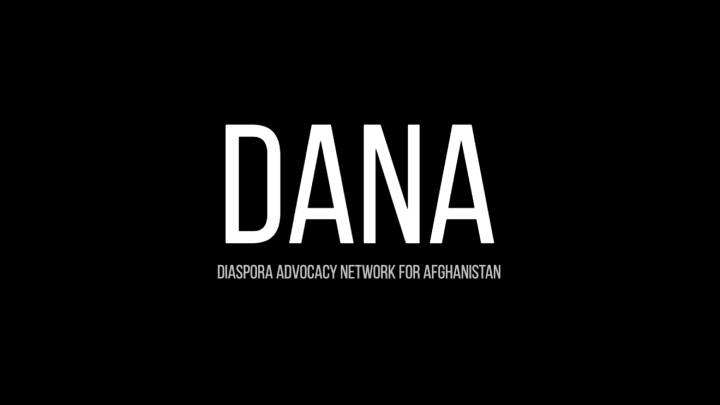
Your organisation, the Diaspora Advocacy Network for Afghanistan, advocates for the rights of all vulnerable populations in Afghanistan.
How are the vulnerable sectors of society fairing so far under reimposed Taliban rule?
When the Taliban first took over we heard about a member of the LGBTIQ community being gang raped and killed afterwards.
We have also been hearing reports about how religious minorities are being treated, especially the Hazara, who are subject to ethnic cleansing.
The Hazara are being forced to leave their ancestral lands, which are then being occupied by the Taliban, who are transferring the land to Pashtun tribes.
The Hazara are facing the worst atrocities they have experienced in recent years. And the Taliban is working on the policy of Amir Abdul Rahman who killed over 60 percent of Hazaras in the 1890s. He sold their land and sold Hazara women into slavery.
DANA recently organised a protest in Brisbane to draw attention to the declining position of women in Afghanistan since the Taliban retook control.
In a statement regarding the 19 September rally, your group criticised the February 2020 Doha agreement between the US and the Taliban, which guaranteed the withdrawal of foreign troops by August this year.
Why was this agreement a betrayal?
That agreement was for the safe passage of America to get out of Afghanistan. That agreement did not guarantee the safety of the people of Afghanistan. And also, there was no agreement for the safety of religious monitories, women or children.
As a whole, the people of Afghanistan think that agreement was a betrayal from the beginning. And all the parties involved were working on the same agenda of empowering and legitimising the Taliban.
In the last 20 years, millions of people have returned back to Afghanistan from around the world and re-established their lives there. A generation has grown up in this style. They have built their brains and worked hard for a prosperous future. And their lives have been shattered overnight.
That is a betrayal of millions of people who have returned and are now trapped there with the risk of the Taliban persecuting them at any time.
So, was the DOHA agreement laying the way for the Taliban to retake control?
Of course. That was an agreement to legitimise the Taliban, and they were given notice that the US would leave by this time.
So, the Taliban knew that if they renegotiated and delayed peace talks, then they could finally take over Afghanistan.
This agenda was ethnically motivated because those involved were all from the same tribe. They were all working on the same agenda: the Pashtunisation of power in Afghanistan.
The Australian government’s approach to the evacuation of people from Afghanistan who’d assisted this nation in its efforts came under great criticism long before the final desperate scenes unfolded at Kabul airport.
What are the thoughts of DANA on how this country approached its departure from Afghanistan after 20 years?
Before I answer your question, I would like to clear up one thing. We at DANA believe the term Afghan is a representation of one ethnic group. It is an imprecise term for other groups.
Afghan means Pashtun. And Pashtun means Afghan. That is the name of that ethnic group, and we don’t identify with it. We don’t want to be called Afghan. We are people from Afghanistan, or we have our own independent identities.
I am Hazara. We also have Kazaks and Uzbeks.
But back to your question, as to how the Australian approach to evacuation was raised way before the US finally left Afghanistan, a lot of the people who helped the Australian forces were at risk of being persecuted.
It was in the interests of the government to take action earlier, when things were calmer, and things could be done safely. But unfortunately, steps weren’t taken at the time.
Many of those people have been put in a very dangerous situation with the fall of the Kabul government.
And lastly, Barat, the recent DANA rally was calling on the Australian government to stand in solidarity with the women of Afghanistan. So, how should our nation be moving ahead on this issue?
The diaspora community is asking the Australian government to provide an additional 20,000 humanitarian visas to ensure the safety and evacuation of many of these people, so their lives are saved.
Twenty thousand is what Canada and England have committed to. And also, the United States increased its intake last week.
That would help in this situation and save a lot of these people.
That’s apart from the diaspora community in Australia. We have also asked for the reunification of all family members of the people who are already in Australia and who have been waiting for their loved ones to be reunited with them.
Most of these families have women and children trapped in Afghanistan. So, in this way the situation could be handled well, and a lot of these people can be saved from persecution.
That is how Australia can play a very positive role in this situation.



